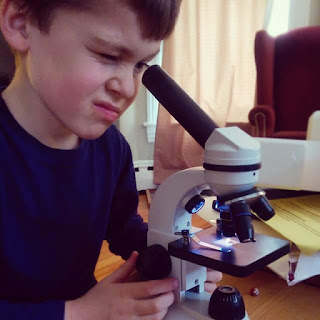Most parents are good parents. But if your son or daughter has attention deficit disorder (ADHD), "good" may not be enough. To ensure that your child is happy and well-adjusted now and in the future — and to create a tranquil home environment — you've got to be a great parent.
Fortunately, it's easier than you might imagine to go from good to great. All it takes is a few small adjustments in your parenting strategies and the way you interact with your child. Here's what works, and why:
1. Accept the fact that your child — like all children — is imperfect.
It's not easy to accept that there's something not quite "normal" about your child. But a child who senses his parents' resentment — and their pessimism about his prospects — is unlikely to develop the self-esteem and can-do spirit he'll need in order to become a happy, well-adjusted adult.
"For a child to feel accepted and supported, he needs to feel that his parents have confidence in his abilities," says Ken Brown-Gratchev, Ph.D., a special education instructor at Kaiser Permanente in Portland, Oregon. "Once parents learn to look at the gifts of ADD — things like exceptional energy, creativity, and interpersonal skills — they can see the shine inside their child."
Carol Barnier, of New Fairfield, Connecticut, certainly sees the "shine" in her ADHD child. "My child is destined for something wonderful, something that would be impossible for those calmer, regular-energy level children," she says. "I can think of several occupations where boundless energy would be an incredible asset. I'm even jealous of his tireless enthusiasm for life and wonder what more I could accomplish if I were so blessed."
Do your best to love your child unconditionally. Treat him as if he were already the person you would like him to be. That will help him become that person.
2. Don't believe all the "bad news" about your child.
It's no fun to hear school employees describe your child as "slow" or unmotivated. But don't let negative remarks deter you from doing everything in your power to advocate for his educational needs. After all, kids with ADHD can succeed if they get the help they need.
"While it's true that your child's mind works differently, he certainly has the ability to learn and succeed just like any other kid," says George DuPaul, Ph.D., professor of school psychology at Lehigh University in Bethlehem, Pennsylvania. "Look at it this way—if your child was diabetic or had asthma, would you, for one single minute, hesitate to advocate for his benefit?" Just as a diabetic needs insulin and an asthmatic child needs help breathing, the ADHDer needs his learning environment regulated.
Sue Greco of Warwick, Rhode Island, is adamant about being her 11-year-old's strongest advocate. "My son has a great brain," she says. "He's a leader, with great ideas, but he's been labeled 'unable to succeed' at the local public school. Because I know he's capable of more, I've enrolled him in a Catholic school, hoping the higher academic expectations and greater structure will challenge him in a positive way."
3. Don't overestimate the importance of medication.
There's no doubt that, for many children with ADD, the right medication makes a huge difference in behavior. But by no means is medication the only thing that makes a difference, and talking about it as if it were will leave the child feeling that good behavior has little to do with her own efforts. When you catch your child doing something you've repeatedly asked her not to do, fight the urge to ask, "Did you forget to take your medication this morning?" And don't ever threaten to increase her dosage because she did something inappropriate.
"Statements like these give your child the impression that her behavior is controlled solely by external factors," says Dr. Brown-Gratchev. "It's a parent's responsibility to send the clear message that, while medication will improve the skills she already possesses, it won't magically fix all of her troubles."
As Sara Bykowski, a mother of two sons with ADHD living in Angola, Indiana, puts it, "I tell my kids that their medicine is like glasses. Glasses improve eyesight that the person already has. My kids know that their self-control, no matter how limited, is the main factor in their behavior management."
4. Make sure you know the difference between discipline and punishment.
How often have you complained to friends or family members (or even a therapist), "I've yelled, lectured, threatened, given time-outs, taken away toys, canceled outings, bribed, begged, and even spanked — and nothing works!" Do you see the problem with this approach? Any child exposed to such a variety of "sticks" would be confused. And one of the most effective approaches to discipline — the "carrot" of positive feedback — isn't even mentioned.
"Many parents use the terms 'discipline' and 'punishment' interchangeably," says Sal Severe, Ph.D., the author of How to Behave So Your Preschooler Will Too! "In fact, they're vastly different." Discipline, he says, is preferable because it teaches the child how to behave. It includes an explanation of the inappropriate behavior and redirection to acceptable behavior — along with positive reinforcement each time the child makes a good behavior choice. Punishment, on the other hand, uses fear and shame to force the child to behave.
Punishment certainly has its place. However, it should never involve physical or verbal abuse, and it should be used only as a last resort. For example, if your child continues to yank the cat's tail despite being repeatedly told not to — he should be punished.
Often, the best way to discipline an ADHD child is via a simple program of behavior modification: Define age-appropriate, attainable goals and then systematically reward each small achievement until the behavior becomes routine. By rewarding positive behavior (rather than punishing negative behavior), you help your child feel successful — and further increase his motivation to do the right thing.
















